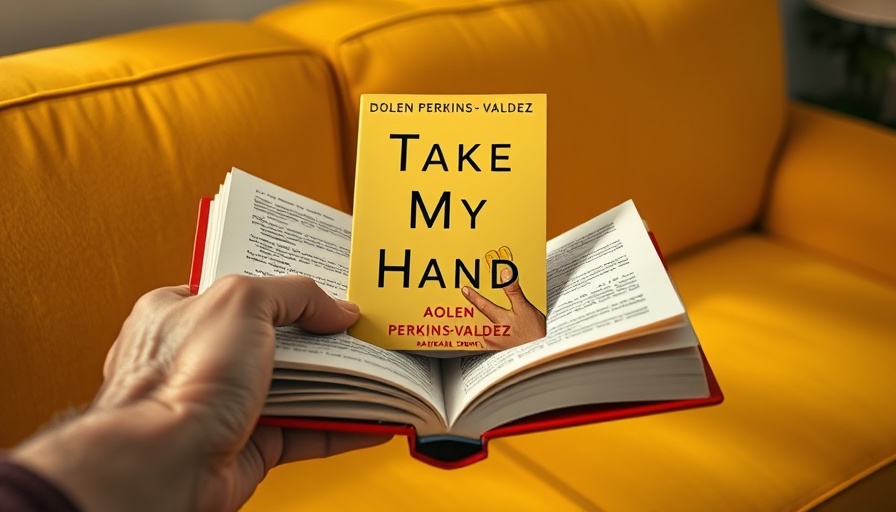
Understanding the Themes in Take My Hand
Dolen Perkins-Valdez’s novel Take My Hand immerses readers in the poignant journey of Civil Townsend, a nurse in 1973 Alabama confronting a medical system rife with injustices. This exploration unfolds in a context where Black individuals faced systemic discrimination, and highlights critical themes of accountability and redemption, as well as the ongoing struggle for autonomy in healthcare. For seniors, this book not only serves as a compelling narrative but also resonates deeply with historical truths that are vital to remember and understand.
The Historical Context of Medical Ethics
Set against a backdrop of real historical events, Perkins-Valdez’s story is inspired by the infamous Relf v. Weinberger case. Readers may recognize parallels to several historical injustices involving medical ethics, such as the Tuskegee experiment. Understanding these events illuminates why such narratives are crucial in contemporary discussions about medical ethics and the importance of informed consent. For seniors today, recognizing these legacies helps frame the responsibility they have to advocate for patients' rights and to honor the lessons learned from past mistakes.
Connecting Personal Histories to Collective Memory
The methodology Perkins-Valdez employs—to tell a story inherited by present-day Civil from her experiences—shines a light on the significance of storytelling in preserving family histories. Many seniors might relate to the notion that their lives, once lived, become the teachable moments for younger generations. Passing down these histories can enrich community bonds and provide necessary warnings about the pitfalls of past injustices. By reading this book, seniors can reflect on their legacies and consider what they wish to impart to those after them.
Literary Responsiveness: Engaging With Deep Questions
As part of engaging with Take My Hand, readers are encouraged to reflect on the complex layers of kindness versus responsibility illustrated within the characters. Civil and her peers struggle with the concept of their good intentions possibly leading to harm. This raises questions not just about their actions, but about how well-intentioned actions can backfire. Through lively discussions inspired by the book, seniors can explore their own experiences with intentions and the repercussions that come with them, creating an opportunity for collective self-examination.
A Reflection on the Importance of Dignity
One particularly moving element of Take My Hand is the emphasis on maintaining dignity amid adversity, as seen through the characters of the Townsend and Williams families. This resonates powerfully with seniors striving to uphold their dignity in the face of aging and health challenges. The subtle daily routines highlighted in the book underscore the notion that dignity is not always in grand gestures, but rather in the small, everyday actions that define a person’s humanity.
Questions for Thoughtful Reflection
For book clubs engaging with Take My Hand, here are a few thought-provoking questions to navigate the discussions effectively:
- What role does Civil’s narrative play in shaping our understanding of medical ethics today?
- How can we relate the idea of “good intentions” from the book to our lives or to the healthcare system as it stands now?
- In what ways does this story highlight the connection between personal narratives and collective memories?
These questions not only facilitate rich discussions but also encourage participants to draw connections between the narrative and their own lives.
Participating in a Book Club: Building Connections
Engaging in book clubs centered around novels like Take My Hand provides seniors with opportunities not only to share their insights but also to foster community connections. Such interactions can combat loneliness and promote a sense of belonging among participants. Literature serves as a bridge that can enhance conversations about important social issues and personal experiences, creating a safe space for sharing and reflection.
In conclusion, Take My Hand serves more than simply as a reading choice; it invites introspection into the broader narratives of ethics, family histories, and the importance of dignity. As we delve into the pages, let us also explore our roles as advocates and historians, ensuring that lessons from the past shape our present for a morejust future.
 Add Row
Add Row  Add
Add 




Write A Comment